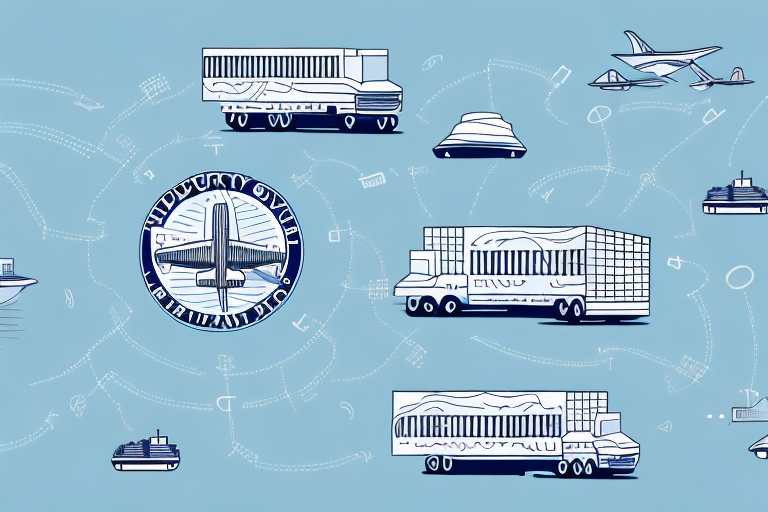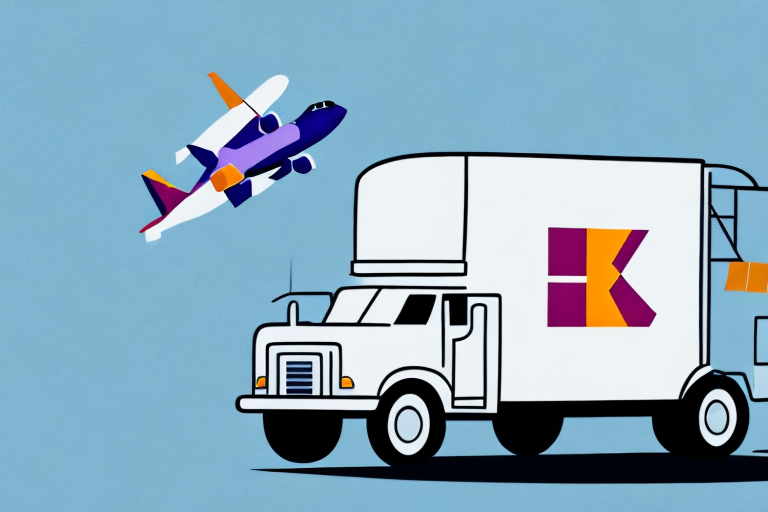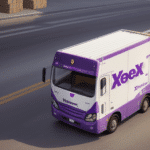Understanding the Contract of Carriage in Supply Chain Management
For businesses involved in the transportation of goods, the contract of carriage represents a critical stage in the supply chain. This agreement outlines the terms and conditions for transporting goods from one location to another. Ensuring that this contract is meticulously negotiated and comprehended by all parties is essential for the seamless execution and timely delivery of goods. In this article, we will delve into the contract of carriage within supply chain management, exploring its importance, types, key provisions, legal considerations, and best practices.
The Importance of the Contract of Carriage in Supply Chain Management
The contract of carriage serves as the cornerstone of transportation management by defining the obligations and liabilities of both the shipper and the carrier in the movement of goods. This contract ensures that all parties are aware of their responsibilities and rights, enabling them to enforce these terms if necessary. A well-drafted contract of carriage allows companies to manage risks and costs effectively, avoid disputes, and guarantee the timely delivery of goods.
Moreover, the contract of carriage plays a crucial role in ensuring compliance with regulatory requirements. It outlines the necessary documentation, permits, and licenses required for the transportation of goods, ensuring that all legal obligations are met. This is particularly important for international shipments, where different countries have varying regulations and customs procedures. A comprehensive contract of carriage can help companies navigate these complexities and avoid costly penalties or delays.
According to the International Federation of Freight Forwarders Associations (FIATA), a well-structured contract of carriage can reduce transportation costs by up to 15% by minimizing delays and disputes.
Key Provisions of the Contract of Carriage
The contract of carriage typically includes several key provisions:
- Origin and Destination: Specifies where the goods are picked up and delivered.
- Mode of Transportation: Details whether the transportation will be by sea, air, land, or a combination thereof.
- Type of Goods: Describes the nature of the goods being transported.
- Delivery Timeline: Sets the expected dates for delivery.
- Responsibilities and Liabilities: Outlines the obligations of both the shipper and the carrier, including handling of loss or damage.
- Payment Terms: Details how and when payments will be made.
- Insurance: Specifies insurance coverage for the goods.
- Dispute Resolution: Defines the mechanisms for resolving any disputes that may arise.
Including these provisions ensures clarity and sets the foundation for a successful transportation process.
Types of Contracts of Carriage in Supply Chain Management
There are several types of contracts of carriage, each tailored to specific transportation needs:
- Bill of Lading: A legal document serving as a receipt for shipped goods, a contract of carriage, and a document of title. Commonly used in ocean and inland waterway transportation.
- Sea Waybill: A non-negotiable document that serves as evidence of the contract of carriage and receipt of goods, often used in short-sea shipping and containerized cargo.
- Air Waybill: A document that acts as a contract of carriage and a receipt of goods for air transportation.
- Multi-Modal Transportation Contract: Used when goods are transported using multiple modes of transportation, such as sea, air, and land.
- Land Transportation Contract: Utilized for the transportation of goods by road or rail.
Choosing the appropriate contract type depends on the mode of transportation, the nature of the goods, and the destination.
The Role of Carrier Liability in Supply Chain Management
Carrier liability refers to the legal responsibility of the carrier to transport goods safely and on time. In the event of loss or damage to the goods, carriers may face liability claims from shippers, potentially leading to disputes and financial losses. Therefore, it is crucial for carriers to maintain proper insurance coverage and adhere to best transportation practices to mitigate liability claims.
Carrier liability significantly impacts the overall efficiency and reliability of the transportation process. Shippers depend on carriers to deliver their goods promptly and securely, and any disruptions or delays can have a cascading effect on the entire supply chain. Maintaining high standards of responsibility and reliability helps carriers build trust and maintain a positive reputation with their customers.
Research by the Transportation Research Board indicates that effective management of carrier liability can reduce shipment-related disputes by up to 20%.
Understanding Freight Forwarders and Their Role in the Contract of Carriage
A freight forwarder is a logistics partner that arranges and manages the transportation of goods on behalf of shippers. Expertise in transportation and customs clearance procedures enables freight forwarders to offer valuable advice on route optimization, legal compliance, and carrier selection. Additionally, freight forwarders play a pivotal role in negotiating and managing the contract of carriage between the shipper and the carrier.
One of the key benefits of working with a freight forwarder is their ability to provide end-to-end logistics solutions. This encompasses handling all aspects of the transportation process, from arranging the pickup of goods at the shipper's location to coordinating the delivery to the final destination. This comprehensive management can save shippers time and money by eliminating the need to manage multiple logistics providers or coordinate transportation independently.
Freight forwarders also manage the documentation required for international shipments, including bills of lading, commercial invoices, and other customs documents. Their expertise ensures that all necessary documentation complies with the regulations of different countries, helping to avoid delays and additional costs associated with customs clearance.
According to the Global Freight Forwarders Association, companies utilizing freight forwarders report a 25% increase in shipping efficiency due to streamlined processes and expert handling.
How to Negotiate a Favorable Contract of Carriage for Your Business
Negotiating a contract of carriage requires careful planning, analysis, and communication. Shippers should consider factors such as transportation mode, distance, type of goods, carrier reputation, and pricing. The negotiation process should aim to ensure that the contract meets the company's transportation needs, minimizes risk, and provides cost-effective and timely delivery.
Including performance metrics in the contract is essential. These metrics can include on-time delivery rates, claims ratios, and customer satisfaction scores. By incorporating these metrics, shippers can hold carriers accountable for meeting their expectations and ensure they receive the necessary level of service. Regularly reviewing and updating the contract is also important to adapt to the company's evolving transportation needs.
Industry reports from the Logistics Research Institute suggest that leveraging data analytics during negotiations can lead to contracts that save up to 10% on transportation costs.
Common Challenges Faced When Dealing with Contracts of Carriage in Supply Chain Management
Managing contracts of carriage presents several challenges, including language barriers, cultural differences, legal complexities, customs regulations, and unforeseen circumstances such as delays or natural disasters. To overcome these challenges, companies should implement a robust risk management plan, maintain effective communication with all parties involved, and utilize technology that provides real-time information and tracking.
One significant challenge is the lack of transparency in the supply chain, which can lead to delays, lost shipments, and increased costs. Implementing blockchain technology offers a secure and transparent method to track goods throughout the supply chain, enhancing visibility and accountability.
Additionally, the increasing demand for sustainable and ethical supply chains poses challenges related to environmental and social standards compliance. Companies must ensure that their transportation providers adhere to practices such as reducing carbon emissions and maintaining fair labor practices. This requires close collaboration, monitoring of transportation providers, and the use of tools like sustainability audits and certifications.
According to a survey by the Supply Chain Monitoring Agency, 70% of companies cite transparency and sustainability as their top challenges in managing contracts of carriage.
Legal Issues Surrounding the Contract of Carriage in Supply Chain Management
The contract of carriage is governed by various legal frameworks, including international conventions, local laws, and industry regulations. The interpretation and application of these laws significantly impact the validity and enforceability of the contract. It is imperative for companies to seek legal counsel to ensure that their contracts comply with legal requirements and protect their interests in the event of disputes.
The legal issues associated with the contract of carriage vary depending on the mode of transportation. For instance, contracts for air transportation are subject to the Montreal Convention, while contracts for ocean transportation are governed by the Hague-Visby Rules. Companies must be aware of these differences and tailor their contracts to the specific mode of transportation being utilized.
Failure to comply with relevant legal frameworks can result in contracts being deemed unenforceable, leading to potential financial and reputational damages. Therefore, thorough legal review and understanding are essential components of contract management.
Best Practices for Managing Contracts of Carriage in Supply Chain Management
To efficiently manage contracts of carriage, companies should adhere to the following best practices:
- Maintain Accurate Records: Keep detailed records of all contracts, communications, and transactions.
- Inspect Goods Before Transportation: Ensure that goods are correctly packaged and labeled to prevent damage during transit.
- Provide Clear Shipping Instructions: Clearly communicate expectations and requirements to carriers and freight forwarders.
- Regular Communication: Maintain ongoing dialogue with carriers and freight forwarders to address any issues promptly.
- Utilize Tracking Technology: Implement tracking systems to monitor the movement of goods in real-time.
- Review and Update Contracts: Periodically assess and revise contracts to reflect changing business needs and market conditions.
Establishing a contingency plan is also vital to address unexpected events such as natural disasters, strikes, or equipment failures. This plan should include alternative transportation options, communication protocols, and procedures for managing delays or disruptions.
Incorporating sustainability into transportation practices is another best practice. This can involve using fuel-efficient vehicles, reducing packaging waste, and partnering with carriers and freight forwarders committed to sustainable operations. Embracing sustainability not only reduces environmental impact but also enhances company reputation and attracts environmentally conscious consumers.
According to the Supply Chain Best Practices Forum, adopting these best practices can improve contract compliance by up to 30% and reduce operational costs by 12%.
Factors to Consider Before Signing a Contract of Carriage with a Carrier
Before finalizing a contract of carriage, companies should evaluate several critical factors:
- Carrier Reputation: Assess the carrier's reliability, track record, and customer reviews.
- Transport Mode: Choose the mode of transportation that best suits the type and urgency of the goods.
- Pricing: Compare rates and ensure that the pricing structure aligns with the company's budget and expected costs.
- Insurance Coverage: Verify that adequate insurance is in place to protect against potential losses or damages.
- Delivery Timeline: Ensure that the carrier can meet the required delivery schedules.
- Security Measures: Confirm that the carrier has robust measures to handle goods securely and safely.
- Legal and Regulatory Compliance: Ensure that the contract adheres to all relevant legal and regulatory requirements.
Additionally, companies should thoroughly understand the contract's terms and conditions, including any clauses related to liability, indemnification, and termination. Seeking legal advice can help clarify complex terms and ensure that the contract safeguards the company's interests.
The Contract Evaluation Institute recommends conducting a comprehensive carrier assessment to enhance contract effectiveness and mitigate risks.
How Technology is Changing the Landscape of Contracts of Carriage in Supply Chain Management
The adoption of advanced technology has revolutionized the transportation and logistics industry. Innovations such as real-time tracking, mobile applications, blockchain, and big data analytics enable companies to optimize their transportation processes, reduce costs, and enhance customer satisfaction. Technology also facilitates better communication between shippers, carriers, and freight forwarders, ensuring the smooth execution of contracts of carriage.
One of the most significant technological impacts on contracts of carriage is the ability to track shipments in real-time. This capability allows companies to monitor the progress of their shipments and make necessary adjustments to ensure timely delivery. Additionally, big data analytics enable companies to identify patterns and trends in their transportation processes, facilitating data-driven decisions to improve efficiency and reduce costs.
Emerging technologies such as autonomous vehicles are also transforming the landscape of contracts of carriage. Self-driving trucks and drones are being developed and tested, which could potentially reduce the need for human drivers and increase the speed and efficiency of transportation. However, widespread adoption of these technologies will require substantial investment and regulatory changes.
According to a report by Tech Logistics Insights, companies that leverage advanced technologies in their contracts of carriage experience a 20% improvement in delivery accuracy and a 15% reduction in transportation costs.
Tips for Ensuring Smooth Execution and Delivery under a Contract of Carriage
To ensure the smooth execution and delivery of goods under a contract of carriage, companies should adhere to the following tips:
- Reliable Transportation Partner: Choose a trustworthy carrier or freight forwarder with a proven track record.
- Tracking Technology: Implement tracking systems to monitor the movement of goods in real-time.
- Regular Communication: Maintain consistent communication with all parties involved to address any issues promptly.
- Proper Packaging and Labeling: Ensure that goods are adequately packed and labeled to prevent damage during transit.
- Compliance with Legal Requirements: Adhere to all relevant legal and regulatory requirements to avoid delays and penalties.
Additionally, having a contingency plan in place is essential to handle unexpected events such as natural disasters, strikes, or equipment failures. This plan should outline alternative transportation options, communication protocols, and procedures for managing delays or disruptions.
In conclusion, the contract of carriage is a pivotal component of transportation management in supply chain operations. Whether collaborating with carriers or freight forwarders, it is imperative to have a well-crafted contract that safeguards the company's interests and ensures the safe, secure, and efficient transportation of goods.




















